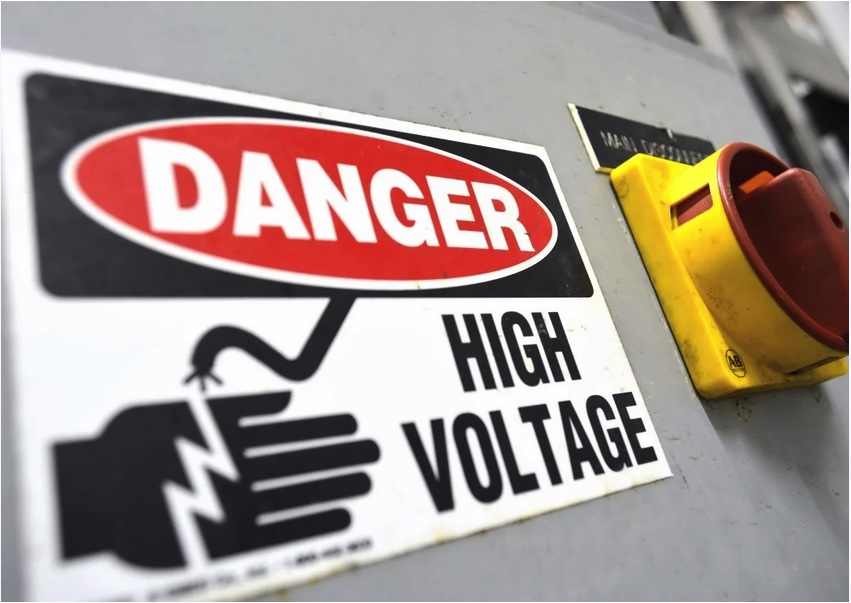What is NFPA 70E and why is it important for Wind Techs?
STL USA proudly offers our Low and High Voltage Electrical Safety Training that conforms the national NFPA 70E standard. The training course we offer is a wind-specific, face-to-face training program designed to equip wind technicians with the electrical safety knowledge, best work practices in electrical safety, and how to apply them in real-world situations.
Here we delve into a bit more detail regarding what the NFPA 70E actually means and why it’s so important for those of us working with wind turbines.
NFPA 70E is the National Fire Protection Association’s standard for electrical safety in the workplace. It provides guidelines to protect workers from electrical hazards, including shock, arc flash, and arc blast. The standard covers safety-related work practices, safety-related maintenance requirements, and other administrative controls to ensure safe work environments when employees are exposed to electrical hazards.
How is this applicable to working in Wind Turbines?
Working on wind turbines involves exposure to various electrical hazards, making NFPA 70E highly relevant. Here’s how NFPA 70E applies to the wind energy sector:
Electrical Safety Program
- Wind energy companies must develop an ESP tailored to the specific risks associated with wind turbines. This includes procedures for safe work on electrical components, such as generators, inverters, transformers, and control systems.
Training
- Employees working on wind turbines must be trained in electrical safety according to NFPA 70E standards. This includes understanding the specific electrical hazards associated with wind turbines and the safe work practices required to mitigate these risks.
Work Practices
- Safe work practices, including LOTO procedures, are critical when servicing wind turbines. LOTO ensures that electrical systems are de-energized and cannot be accidentally re-energized during maintenance.
- Proper use of PPE, such as insulated gloves, arc-rated clothing, and face shields, is essential to protect against shock and arc flash hazards.
Maintenance
- Regular maintenance and inspection of electrical components within the wind turbine, such as the generator, control panels, and wiring, must be performed according to NFPA 70E guidelines to ensure their safe operation.
Risk Assessment
- Conducting risk assessments for tasks involving electrical work on wind turbines is crucial. This includes identifying potential arc flash hazards, determining arc flash boundaries, and specifying required PPE and safety measures.
- Wind turbine technicians must use appropriate PPE to protect against arc flash incidents. NFPA 70E provides guidelines for determining the arc flash boundary and selecting the right PPE based on the incident energy level.
- Arc flash labels must be placed on electrical equipment to indicate the potential hazard and required PPE, helping technicians quickly identify the necessary precautions.
Specific Examples in Wind Turbines
Generator Maintenance
- When servicing the wind turbine generator, technicians must follow LOTO procedures to ensure it is de-energized. They should wear arc-rated clothing and use insulated tools to prevent electrical shock and arc flash incidents.
Control Panel Work
- Technicians working on control panels within the nacelle must perform a risk assessment to determine the arc flash hazard. Appropriate PPE, such as an arc flash suit and face shield, should be worn to protect against potential arc flash.
Cable Inspections
- Inspecting and maintaining the cabling that runs from the nacelle to the transformer requires adherence to NFPA 70E standards. This includes verifying de-energization and using insulated gloves and protective clothing.
As you can see, high quality QEW Electrical Safety training is essentail for safely working in wind turbines, it’s vital importance cannot be overlooked.
The STL USA QEW training is a 2-day course covering 2 modules, for low and high voltage, and is easily tagged onto the end of any of our other training courses taken at our sate of the art facilities in Abilene, Texas. Modules can be taken together over the 2 days or individually as required.
We are also a Siemens approved provider for QEW training to NFPA 70E low voltage, vital for anyone wishing to work in or around Siemens turbines.
Book your QEW NFPA 70E course
Click the button to book now.

